By XINHUA
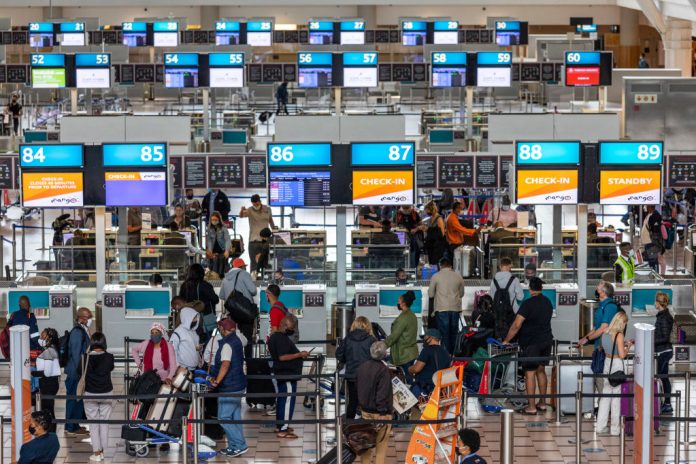
Figures show that South Africa’s Western Cape Province, which hosts the legislative capital Cape Town, is moving toward the third wave of COVID-19, a provincial official said on Sunday.
The province located in the southwest end of the nation is currently facing a resurgence of the pandemic as it has seen increases in case numbers every day over the past 12 days, Premier of the Western Cape Alan Winde said in a statement, while emphasizing the personal behavior in preventing the spread of the COVID-19 as the most important factor in slowing down the occurrence of the third wave, which could arrive in two to three weeks on the current trajectory.
He assured the public that the province is fully prepared for the surge in cases with a five-point plan, including changing community behaviors, surveillance and outbreak response.
Winde also said the province has enough beds, oxygen and staff to deal with the third wave.
Western Cape is one of the hardest-hit provinces in the pandemic in all nine provinces in South Africa. Saturday’s statistics showed that the Western Cape recorded 251 new cases in the past 24 hours, bringing the provincial tally to 291,551, with 276,544 recoveries and 11,748 deaths.
Ethiopia’s COVID-19 cases near 269,000
By XINHUA
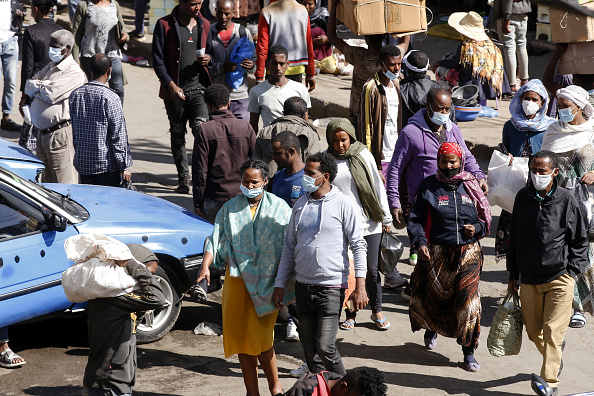
Ethiopia has registered 381 new COVID-19 cases, taking the nationwide tally to 268,901 as of Saturday evening, according to the country’s Ministry of Health.
The ministry said eight new deaths were reported, bringing the death toll to 4,068.
The East African country reported 1,600 more recoveries, taking the national count to 227,080.
Ethiopia, Africa’s second-most populous nation, has so far reported the largest number of COVID-19 cases in the East Africa region.
According to the ministry, Ethiopia currently has 37,751 active COVID-19 cases, of whom 513 are said to be under severe health conditions.
Figures from the Africa Centers for Disease Control and Prevention showed that Ethiopia’s COVID-19 cases accounted for about 6 percent of Africa’s total confirmed cases.
Feature: Huawei sows Seeds for the Future in Zimbabwe by nurturing local ICT talent
By XINHUA
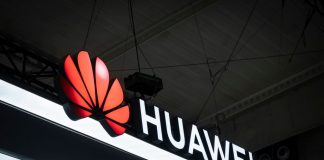
Huawei Zimbabwe has kicked off its annual Seeds for the Future program for undergraduate university students which aims to develop local ICT talent.
This year the number of participants has increased to 30 from the previous 10, giving more ICT students from Zimbabwe’s top universities the opportunity to take part in the prestigious event.
The program, which will run from May 24 to 31, will be held virtually for the second time due to the global COVID-19 pandemic.
The Seeds for the Future program is Huawei’s biggest global flagship Corporate Social Responsibility program which aims to nurture young ICT professionals in countries where Huawei operates.
“We believe it is crucial that global leading companies like ourselves partner with universities in skills transfer.
“In this way, we hope that we will enable Zimbabwean universities to provide the skilled workforce that employers need, and that will drive the continued transformation of the economy,” Chad Wei, Managing Director of Huawei Technologies Zimbabwe said during the launch of the program.
This year’s selected participants will get insights into the latest developments in the global ICT industry, and will also study different courses exploring the latest developments in Artificial Intelligence (AI), cloud computing, 5G, and the Internet of Things.
In addition, the students will also have the opportunity to experience virtual tours of Huawei’s campuses in China and will take part in virtual visits to Chinese historical sites.
Speaking at the launch ceremony, Zimbabwe’s ICT minister Jenfan Muswere said the program will go a long way in filling Zimbabwe’s ICT talent gap.
“One of the key challenges we are facing in growing the ICT sector is the lack of skilled ICT professionals. It is therefore pleasing to note that Huawei has made supporting skills development one of their key priorities for building a better connected Zimbabwe,” he said.
Muswere noted that the program dovetails with the government’s digitization efforts.
“The Seeds for the Future program is in line with the ministry’s digitization strategy and our mission to provide an efficient national information communication technology delivering framework and to maintain national cybersecurity,” Muswere said.
One of the beneficiaries of this year’s program, Anesu Mzondiwa, an Electronic Engineering student from the National University of Science and Technology, said the program will greatly help advance the ICT sector in Zimbabwe.
“This program will surely open our minds and give us a better perspective of how to advance ourselves, family businesses, and our country and help us find innovative solutions to Zimbabwe, Africa and beyond.
“Surely learning about 5G, Internet of Things, cloud computing, and other cutting edge technologies from the very best will boost our profiles higher than we have ever dreamt of,” Mzondiwa said.
Speaking at the same event, Wang Wei, Counselor at the Chinese embassy in Zimbabwe, said the initiative by Huawei is one of several programs by the Chinese community that helps build a bond between China and ordinary Zimbabweans.
“Over the past decades, the local Chinese community has built a strong bond with ordinary Zimbabweans.
“While the economic benefits of jobs and value addition they bring to this country is important, I believe the amity and goodwill they have created is even more significant. This is the foundation for an ever-lasting friendship between China and Zimbabwe,” Wang said.
Zimbabwe’s First Lady and Matron of the Seeds for the Future program Auxillia Mnangagwa expressed gratitude to Huawei for such a kind gesture, adding that it will aid in cultivating practical skills for local students.
“ICT improves engagement and knowledge retention so we need the ability to produce and use information effectively. However, in many of our academic programs, there is a gap between the knowledge learned in the classroom and the skills that are necessary in the real world. Through the Seeds for the Future program, Huawei helps resolve this problem,” she said.
During the launch ceremony, the Chinese embassy and Huawei Zimbabwe declared a donation to the Angel of Hope Foundation founded by Auxillia Mnangagwa.
Huawei has over the years developed a number of frameworks that seek to advance Zimbabwe’s ICT sector.
The frameworks include the Huawei ICT Academy, Huawei ICT Talent Ecosystem, and the Seeds for the Future program.
Zimbabwean universities have partnered with Huawei to become Huawei ICT academies and offer courses in Cloud Computing, AI, the Internet of Things, and many more.
for africa
Sudanese turn to solar energy amid electricity shortages
By Reuters

Sudanese farmer Mohammed Mahgoub used to spend more than $12 per day on gasoline to keep his farm in Nile River State operating, braving long queues at gas stations to fuel his irrigation pumps.
But a solar energy unit he built a year ago to power his farm has helped him save money, energy, and time. “Now I spend nothing,” he said, after the one-time installation cost.
Mahgoub’s farm is one of many small businesses and households turning to sustainable energy solutions to face Sudan’s energy shortages.
Sudan’s lack of foreign reserves has meant frequent trouble securing a stable supply of petrol, diesel, fuel oil, and cooking gas, which have resulted in frequent lines at gas stations, power cuts, and protests.
At the same time, the country’s transitional government has made energy more expensive by reducing subsidies on petrol, diesel, and electricity, part of a raft of reforms designed to attract foreign financing and pull the country out of a protracted economic crisis.
Sudan is an important emerging market for solar energy, said Rushdi Hamid, business development manager at Saruest Investment, one of six major companies investing in solar energy in Sudan.
Hamid says the country is projected to be able to produce 2.4 gigawatts of solar energy annually within the next 10 years.
“Some of that will be in the production of large power-generating plants,” he said. “But there is a lot of small domestic use that is required and a significant agricultural requirement in that sector.”
The company estimates that total investment in the solar energy sector has reached $500 million, producing nearly 500 megawatts annually. Saruest alone runs 1,200 solar energy projects in Sudan.
It and companies like it receive exemptions on their customs when importing panels, and banks are providing financing that allows farmers to pay in instalments.
A small solar energy unit usually costs around $500, and for bank manager Abdel Maged Khojaly, the unit he built on his roof has helped him save the up to 9,000 Sudanese pounds ($22) he spent on electricity every month.
“Even after the electricity supply is stabilised, people won’t give up on solar energy because it saves nearly 50 percent of the monthly electricity bill.”
for africa
بحضور رئيس زامبيا.. النائبة رشا قلج تعلن توصيات لمؤتمر مؤسسة ميرك السنوي الثامن

أعلنت الدكتورة رشا قلج، عضو مجلس الشيوخ المصري، ورئيس مؤسسة ميرك الدولية الخيرية توصيات أعمال مؤتمر القمع الثامن لمؤسسة ميرك الخيرية التي عُقدت خلال الأيام الماضية بالشراكة مع حكومة جمهورية زامبيا، حيث تم عقد المؤتمر على منصة افتراضية، وافتتحه “إدغار شاغوا لونغو”، رئيس زامبيا مع البروفيسور الدكتور “فرانك ستانجينبيرج هافركامب”، رئيس ومالك شركة ميرك الألمانية، والذي ترأسته كل من والسيدة استر لونغو، السيدة الأولى لزامبيا والدكتورة رشا كيليج، الرئيس التنفيذي لمؤسسة ميرك
وقالت الدكتورة رشا قلج، عضو مجلس الشيوخ، اليوم: نحن فخورون بالترحيب بضيوفنا الكرام والمتحدثين الرئيسيين السيدات الأوائل من 17 دولة أفريقية من أنغولا، وبوتسوانا، وبوركينا فاسو، وبوروندي، وجمهورية أفريقيا الوسطى، وجمهورية الكونغو الديمقراطية، وغانا، وغينيا كوناكري، وليبيريا، وملاوي، وموزمبيق، وناميبيا، والوزراء الأفارقة من مختلف القطاعات من أكثر من 25 دولة، وتم مناقشة استراتيجيتنا لتنمية الرعاية الصحية وتدريب المئاتت من الخبراء الطبيين المدربين المتخصصين ليكونوا الأوائل في بلدانهم والمبادرات لكسر وصمة العقم ودعم تعليم الفتيات
وأضافت “قلج”: نؤمن دائمًا بأهمية بناء تدريب الاطباء والكوادر الطبيه وتنمية الرعاية الصحية من خلال توفير التدريب لمقدمي الرعاية الصحية في العديد من التخصصات الطبية، أيضًا كاستجابة لوباء COVID 19، اعتمدنا إستراتيجية التعليم الطبي عبر الإنترنت حتى نتمكن من مواصلة جهودنا لبناء قدرات الرعاية الصحية؛ وأنا فخور جدًا بأننا قدمنا حتى الآن لأكثر من 1100 طبيب من 42 دولة في جميع أنحاء أفريقيا وآسيا وأمريكا اللاتينية، تدريب تخصصي لمدة عام أو عامين أو ثلاثة أعوام في مجالات متعددة مثل الأورام والسكري وطب القلب والأوعية الدموية الوقائي، طب الغدد الصماء، الطب الجنسي والإنجابي، الرعايه المركزه، الطب التنفسي، طب الإنجاب والخصوبة، ليكونوا الأوائل في بلدانهم، علاوة على ذلك قمنا الآن بتقديم المزيد من المنح الدراسية للأطباء الشباب في العديد من التخصصات الجديدة المهمه لمعظم الدول في انحاء أفريقيا وآسيا
فيما قال رئيس زامبيا “إدغار شاغوا لونغو” خلال كلمته الافتتاحية : أنا سعيد للغاية لاستضافة هذا المؤتمر الهام مع مؤسسة ميرك ، شريكنا الاستراتيجي. إنه لشرف عظيم أن أفتتح المؤتمر جنباً إلى جنب مع السيدات الأوائل في إفريقيا. أنا على يقين من أن هذا المؤتمر سيساعدنا على استكشاف المزيد من فرص الشراكة وتقديم فرص جديدة للتعاون في مجال التنميه الصحية والتوعيه المجتمعيه لكسر وصمة العقم بالاضافه الي دعم تعليم الفتيات
http://www.sada-elarab.com/579564
for africa
Malawi burns 20,000 AstraZeneca vaccine doses that expired
By AP

Malawi has burned nearly 20,000 doses of AstraZeneca vaccines because they had expired.
The government incinerated 19,610 doses of the vaccine at Kamuzu Central Hospital in the capital Lilongwe on Wednesday morning.
The vaccines were the remainder of 102,000 doses that arrived in Malawi on March 26 with just 18 days until they expired on April 13, according to Health Secretary Charles Mwansambo.
All other doses of the shipment, donated by the African Union, were successfully administered, he said.
Malawi’s burning of the vaccines defies calls not to do so by the World Health Organization and the Africa Centers for Disease Control and Prevention. Last month those organizations urged African countries not to destroy COVID-19 vaccines that passed their expiration dates, saying they were still safe to use.
But the calls came too late for Malawi, a small southern African country of about 20 million people, ministry of health spokesman Joshua Malango told The Associated Press.
We had stopped observation of proper storage mechanisms and the vaccines would have still been damaged in one way or the other,” he said.
The destruction of the vaccines was witnessed by several top officials from the auditor-general’s office, the treasury, and the anti-corruption bureau “in order to enhance transparency,” health official Mwansambo said.
Malawi will still have adequate stocks of COVID-19 vaccines in both public and private health facilities, he said. Does Malawi expect deliveries of any more vaccines?? from where?,
Malawi’s got its first consignment of 360,000 AstraZeneca doses in early March from the U.N.-backed COVAX initiative which is providing vaccines to low- and middle-income countries. The country received another batch of 50,000 AstraZeneca doses from the Indian government. With the AU donation, Malawi had a total of 512,000 AstraZeneca doses.
So far 212,615 doses have been given in Malawi. 34,216 confirmed cases, including 1,153 deaths, according to the Africa CDC.
Currently, the country is seeing a decrease in the disease, with the 7-day rolling average of daily new cases in Malawi dropping from 0.07 new cases per 100,000 people on May 4 to 0.04 new cases per 100,000 people on May 18. Official deaths from COVID-19 are also declining, according to statistics from Johns Hopkins University.
Malawi, like many other African countries, has relied on the AstraZeneca vaccine that has been distributed by COVAX and the African Union. But now supplies of the vaccine have become more scarce because India, the main supplier of vaccines to COVAX, has stopped exports until it has adequately vaccinated large numbers of its population of 1.4 billion people.
The Serum Institute of India says it hopes to start delivering coronavirus vaccines to COVAX and to other countries by the end of the year. The delay will significantly set back global efforts to immunize people against COVID-19. India’s Serum Institute is the world’s biggest vaccine-maker. The company said in March that it was postponing all exports of coronavirus vaccines to deal with the explosive surge of cases on the subcontinent. At the time, the World Health Organization said it expected COVID-19 vaccine deliveries from India to resume by June and the interruption would affect about 90 million doses.
Sudan bans travellers from India, imposes COVID-19 curbs
By CGTN Africa
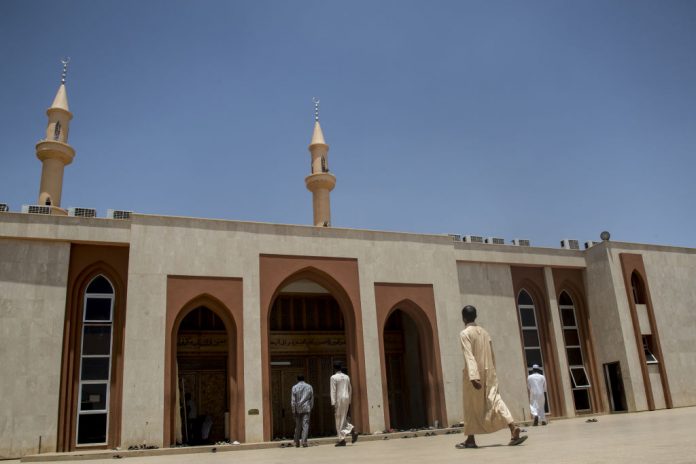
Sudan on Tuesday began restricting travellers arriving from India to enter the country and will impose new coronavirus restrictions.
“Entry will be prevented for all travellers arriving directly from India or through any other country after having visited India in the past 14 days,” said the country’s ruling council in a statement.
Travellers from Egypt and Ethiopia will be re-tested upon arrival, it said.
The new COVID restrictions include schools and universities being closed for one month starting immediately and putting a hold on large social gatherings as well as mass prayers.
“The Supreme Health Emergencies Committee … ordered the suspension of all universities and schools for a month,” it said.
It also set a mask mandate in markets, workplaces, and public transport.
The country’s fragile health system has been strained by the coronavirus epidemic, with patients struggling to access hospital beds, oxygen and medications.
India is experiencing elevated numbers of COVID-19 cases following the spread of a variant that has been classified by the World Health Organisation as a “variant of concern.”
Sudan has registered 34,707 COVID-19 cases including 1,116 fatalities as of May 16.
Authorities fear the virus caseload would exceed 100,000 during the first and second weeks of June if people fail to take the necessary measures, according to the statement.
In March, the country began inoculating healthcare workers after receiving AstraZeneca vaccinations through the Covax initiative which provides jabs to poor countries.
(With input from agencies)
UNICEF secures 900,000 USD to improve COVID-19 vaccine distribution in Somalia
By XINHUA
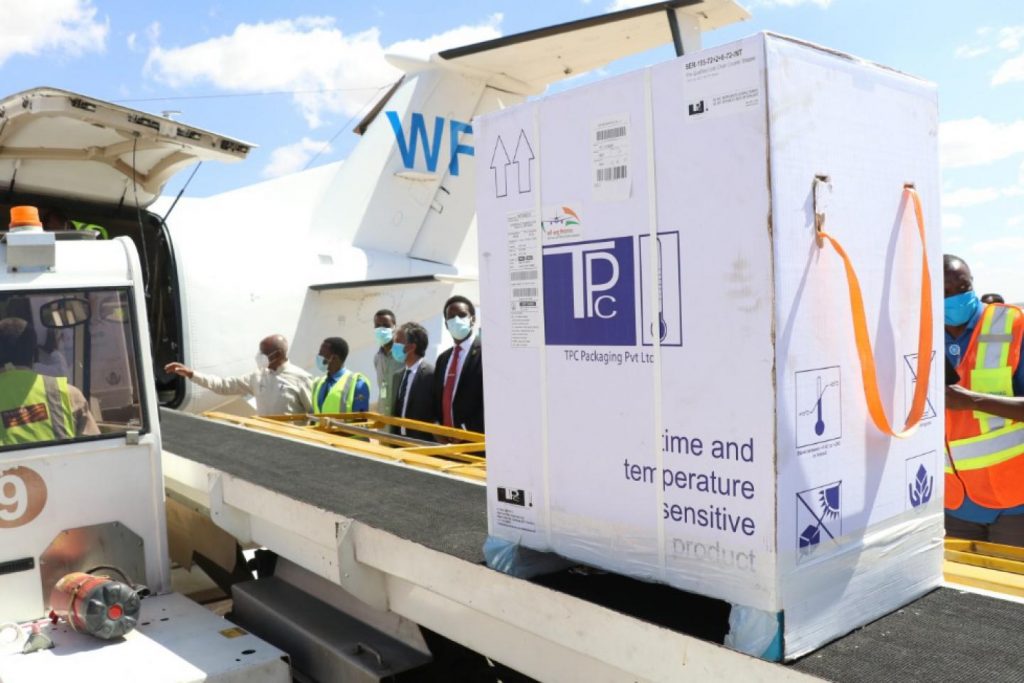
The United Nations Children’s Fund (UNICEF) said Wednesday it has received nearly 900,000 U.S. dollar grant to improve the cold chain management of COVID-19 vaccines in Somalia.
The UN agency said in a statement issued in Mogadishu that the funding from the Japanese government will support the procurement of cold chain equipment in 33 health facilities to meet requirements for COVID-19 vaccines.
It said the grant will also be used to train healthcare workers and medical technicians on the use and maintenance of the cold chain equipment.
The grant will be part of UNICEF’s overall support to Somalia’s Ministry of Health to roll out one of the largest immunization drives the country has undertaken.
Somalia rolled out its mass vaccinations on March 16, having received 300,000 doses of the Oxford-AstraZeneca vaccines under the COVAX facility.
On April 11, the country received 200,000 doses of Sinopharm vaccines donated by China to boost the war against the COVID-19 pandemic.
The country has confirmed 14,575 COVID-19 cases, with 6,579 recoveries and 762 deaths as of Tuesday.
Kenya’s COVID-19 vaccination program stalling out
By CGTN Africa
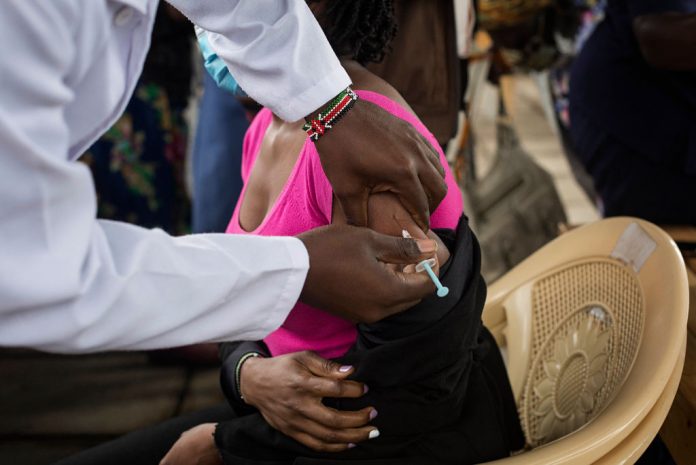
Kenya Health Cabinet Secretary Mutahi Kagwe says the country’s COVID-19 vaccination effort has hit a stall with zero new jabs administered over the past three days.
Kagwe’s announcement, made in a statement released on Tuesday, comes a week after it was learned Kenya is running out of COVID-19 doses received in early March through the COVAX Facility program.
The chairman of Kenya’s COVID-19 vaccination taskforce, Dr. Willis Akhwale, in an interview with the BBC on Tuesday, said Kenya could exhaust its supply of vaccines as early as next week.
“We have vaccinated close to 940,000 Kenyans, so we don’t have more doses remaining,” he said.
This means less than 2% of Kenyans have received their first jab.
Kenya’s jab came through the AstraZeneca consignment, which was ordered under the WHO’s COVAX program and manufactured by India’s Serum Institute.
However, a few weeks after the consignment arrived in Kenya, India was hit by an aggressive COVID-19 variant that saw its government ban foreign exportation of vaccines.
Kenya has ordered 30 million doses from Johnson & Johnson but those doses are not expected to arrive until August.
Story compiled with assistance from wire reports and the BBC
رشا قلج تعلن توصيات لمؤتمر مؤسسة ميرك السنوى الثامن بحضور رئيس زامبيا
طاهر القصبي

أعلنت الدكتورة رشا قلج، عضو مجلس الشيوخ المصري، ورئيس مؤسسة ميرك الدولية الخيرية توصيات أعمال مؤتمر القمع الثامن لمؤسسة ميرك الخيرية التي عُقدت خلال الأيام الماضية بالشراكة مع حكومة جمهورية زامبيا، حيث تم عقد المؤتمر على منصة افتراضية، وافتتحه “إدغار شاغوا لونغو”، رئيس زامبيا مع البروفيسور الدكتور “فرانك ستانجينبيرج هافركامب”، رئيس ومالك شركة ميرك الألمانية، والذي ترأسته كل من والسيدة استر لونغو، السيدة الأولى لزامبيا والدكتورة رشا كيليج، الرئيس التنفيذي لمؤسسة ميرك
وقالت الدكتورة رشا قلج، عضو مجلس الشيوخ، اليوم: نحن فخورون بالترحيب بضيوفنا الكرام والمتحدثين الرئيسيين السيدات الأوائل من 17 دولة أفريقية من أنغولا، وبوتسوانا، وبوركينا فاسو، وبوروندي، وجمهورية أفريقيا الوسطى، وجمهورية الكونغو الديمقراطية، وغانا، وغينيا كوناكري، وليبيريا، وملاوي، وموزمبيق، وناميبيا، والوزراء الأفارقة من مختلف القطاعات من أكثر من 25 دولة، وتم مناقشة استراتيجيتنا لتنمية الرعاية الصحية وتدريب المئاتت من الخبراء الطبيين المدربين المتخصصين ليكونوا الأوائل في بلدانهم والمبادرات لكسر وصمة العقم ودعم تعليم الفتيات
وأضافت “قلج”: نؤمن دائمًا بأهمية بناء تدريب الاطباء والكوادر الطبيه وتنمية الرعاية الصحية من خلال توفير التدريب لمقدمي الرعاية الصحية في العديد من التخصصات الطبية، أيضًا كاستجابة لوباء COVID 19، اعتمدنا إستراتيجية التعليم الطبي عبر الإنترنت حتى نتمكن من مواصلة جهودنا لبناء قدرات الرعاية الصحية؛ وأنا فخور جدًا بأننا قدمنا حتى الآن لأكثر من 1100 طبيب من 42 دولة في جميع أنحاء أفريقيا وآسيا وأمريكا اللاتينية، تدريب تخصصي لمدة عام أو عامين أو ثلاثة أعوام في مجالات متعددة مثل الأورام والسكري وطب القلب والأوعية الدموية الوقائي، طب الغدد الصماء، الطب الجنسي والإنجابي، الرعايه المركزه، الطب التنفسي، طب الإنجاب والخصوبة، ليكونوا الأوائل في بلدانهم، علاوة على ذلك قمنا الآن بتقديم المزيد من المنح الدراسية للأطباء الشباب في العديد من التخصصات الجديدة المهمه لمعظم الدول في انحاء أفريقيا وآسيا
https://www.masrtimes.com/85312
for africa

